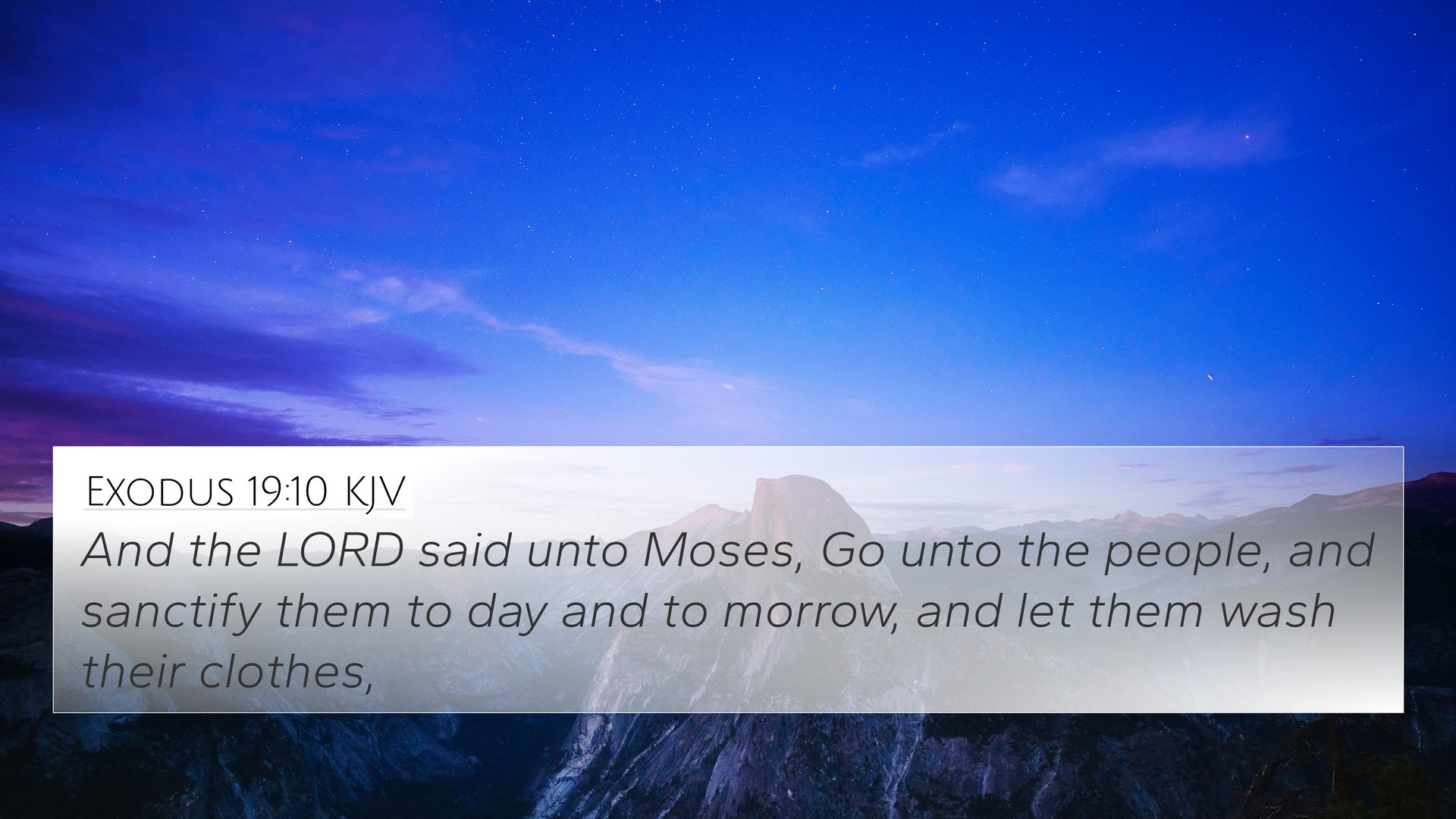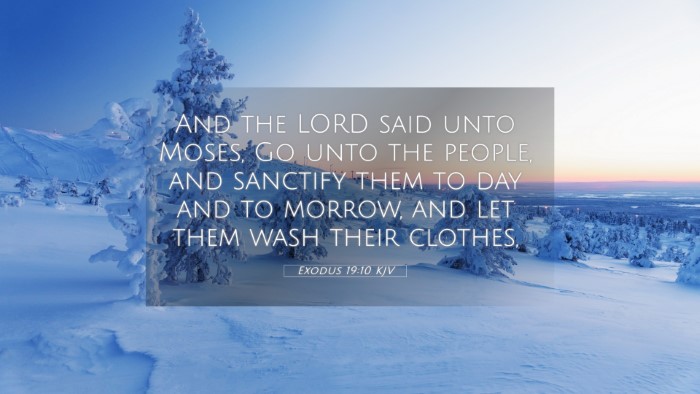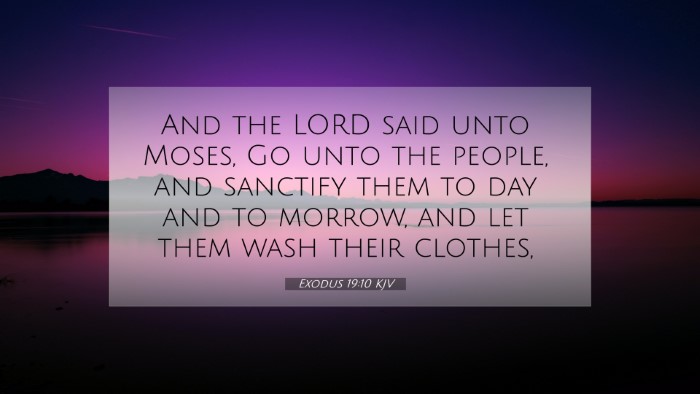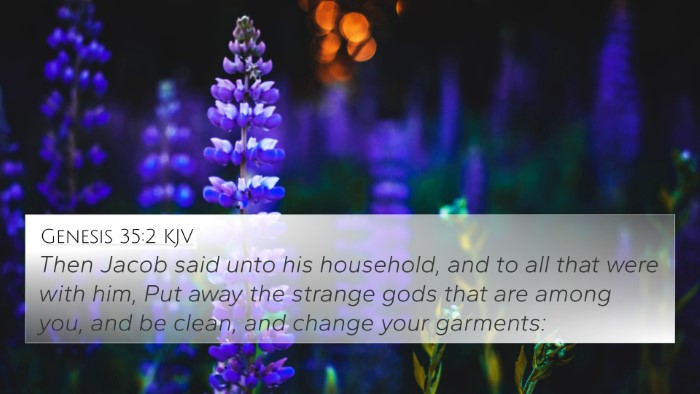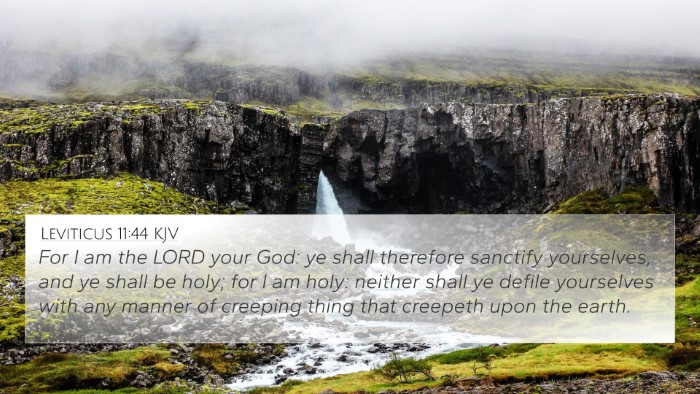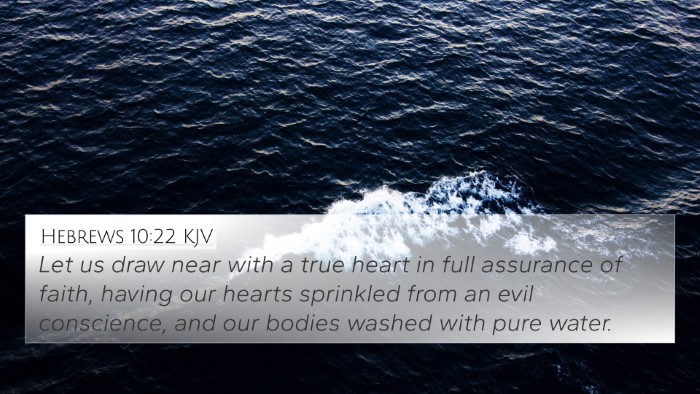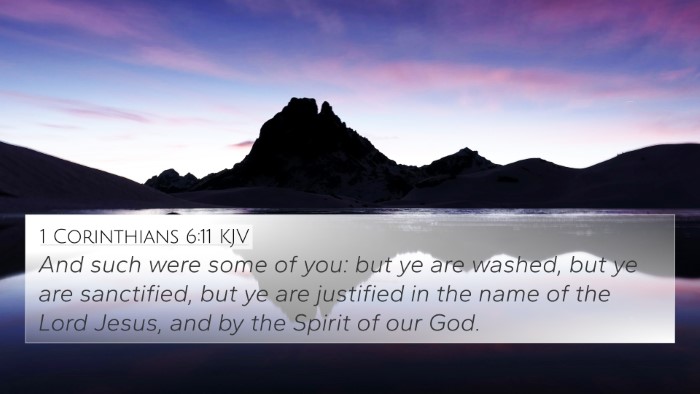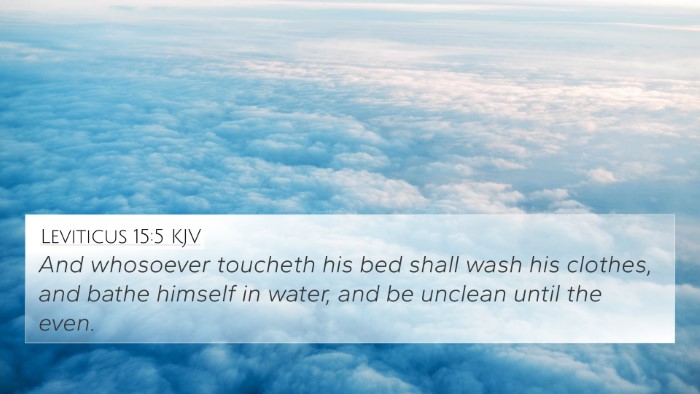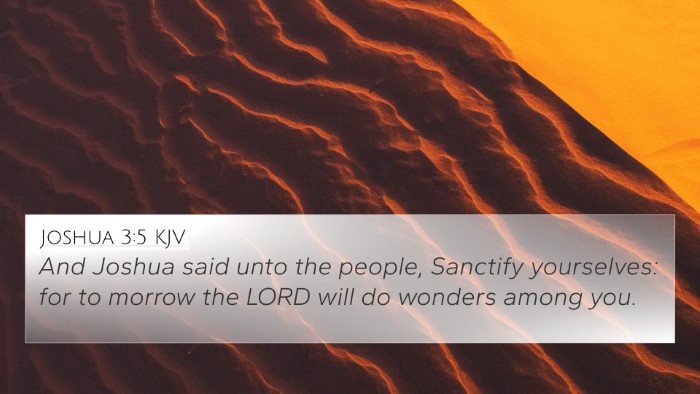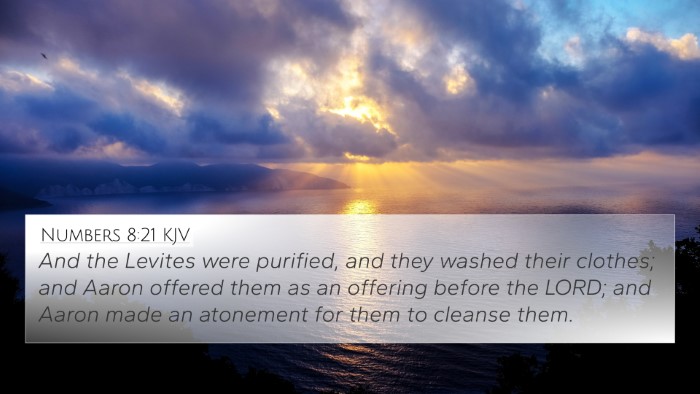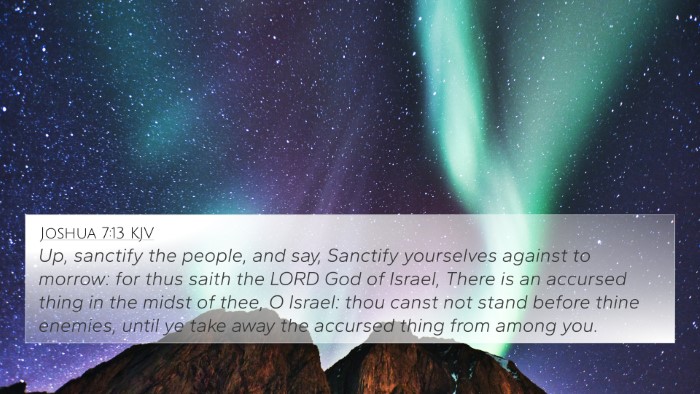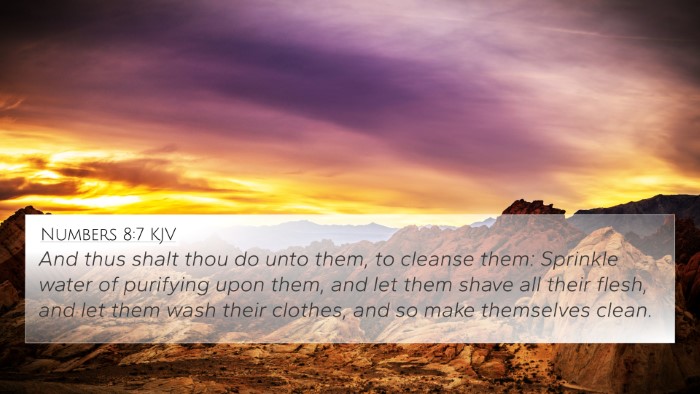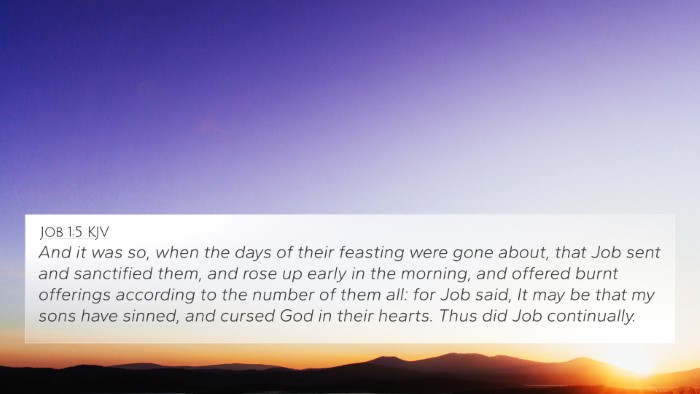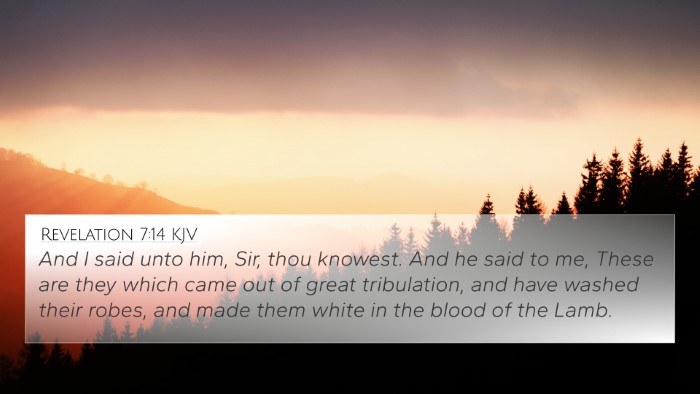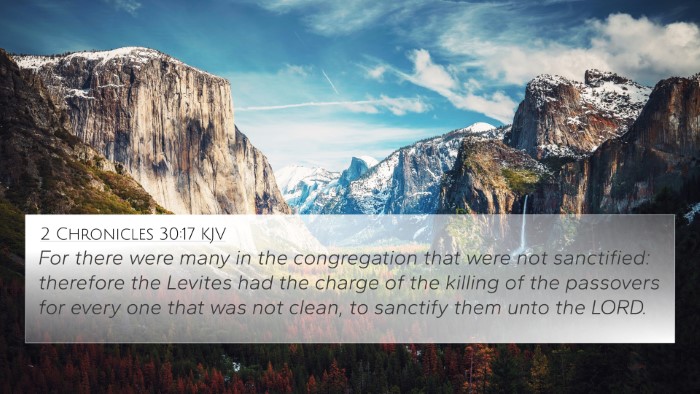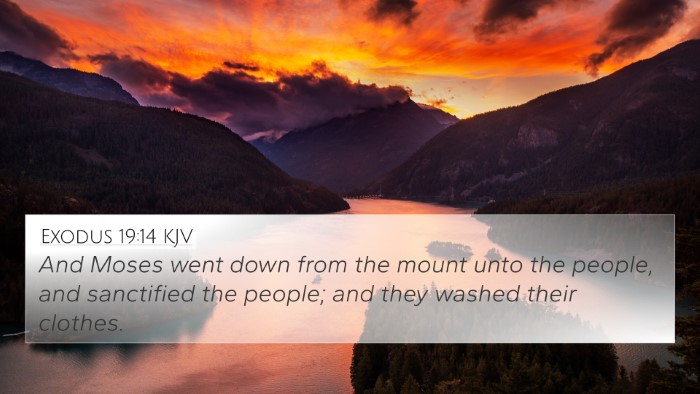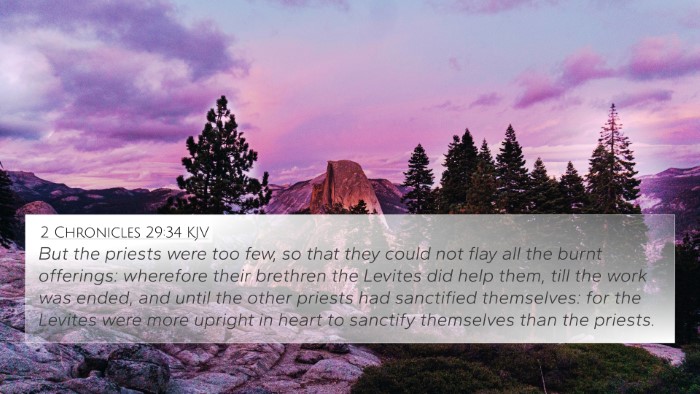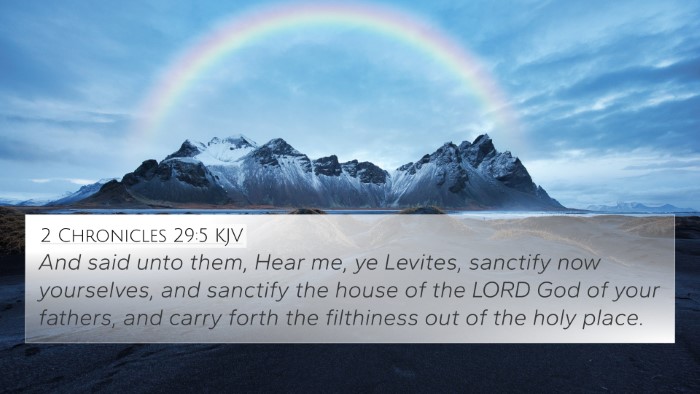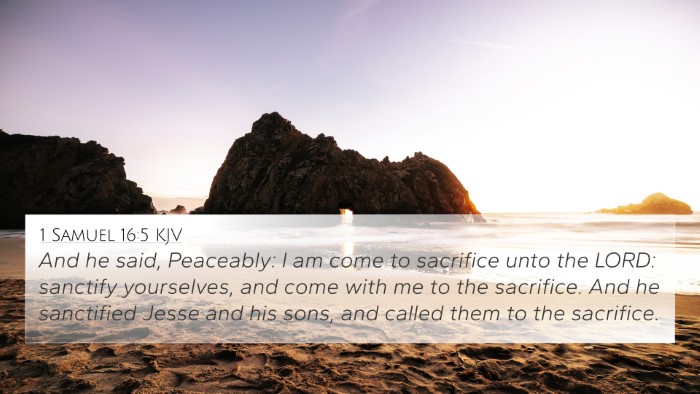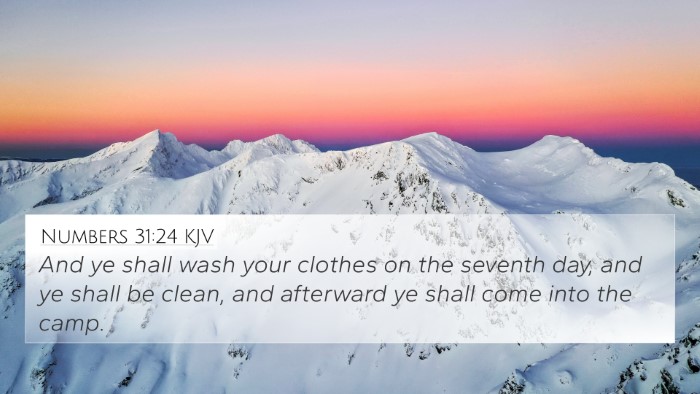Understanding Exodus 19:10
Exodus 19:10 is a pivotal verse that underscores the importance of preparation before encountering God. The context of this verse is vital as it occurs when the Israelites are preparing to meet God at Mount Sinai. This verse states:
"And the LORD said unto Moses, Go unto the people, and sanctify them to-day and to-morrow, and let them wash their clothes." (Exodus 19:10 KJV)
Summary of Insights from Public Domain Commentaries
In examining the insights from renowned biblical commentators such as Matthew Henry, Albert Barnes, and Adam Clarke, we find several critical themes:
- Preparation for Divine Encounter: This verse emphasizes the need for sanctification and readiness to approach God. It illustrates that holiness is essential when coming into God's presence, reflecting the seriousness of divine encounters.
- Symbol of Cleansing: The act of washing clothes symbolizes the purification required before meeting the Lord, signifying both physical and spiritual cleaning.
- Temporal Nature of Preparation: The instruction to sanctify the people over the course of days signifies a process, highlighting that spiritual readiness takes time and dedication.
Thematic Connections to Other Bible Verses
Exodus 19:10 resonates with several other passages in the Bible that discuss themes of holiness, preparation, and covenantal relationships with God. Below are key cross-references that elaborate on the meanings and implications of this verse:
- Leviticus 11:44-45: God calls His people to be holy as He is holy, reinforcing the theme of purity.
- 1 Peter 1:15-16: Echoes the command to be holy, drawing on the Old Testament imperative for moral and spiritual purity.
- Isaiah 52:11: Encourages God's people to depart from impurity, linking to the call for sanctification in Exodus 19.
- James 4:8: Invites believers to draw near to God, emphasizing the need for cleansing and purification.
- Hebrews 12:14: Stresses the importance of holiness in seeing the Lord, echoing the necessity of preparation found in Exodus 19:10.
- Matthew 5:8: Declares that the pure in heart shall see God, aligning with the theme of spiritual cleanliness.
- 2 Corinthians 7:1: Calls believers to cleanse themselves from every defilement, resonating with the washing mentioned in Exodus.
Insights on the Role of Sanctification
Matthew Henry elaborates on the necessity for sanctification before approaching God, noting that it is an act of both obedience and reverence. He emphasizes that such preparation reflects our understanding of God's holiness and our need for redemption. Albert Barnes adds that the washing of clothes is emblematic of inward changes that must occur before one can ethically and spiritually represent God before the world.
Application for Contemporary Believers
For contemporary believers, Exodus 19:10 provides crucial lessons on the importance of spiritual preparation. In our personal and communal worship settings, it serves as a reminder to properly prepare our hearts and minds to meet with God. This preparation involves:
- Daily Sanctification: Engaging in practices that promote spiritual growth and holiness.
- Community Accountability: Encouraging one another within the faith community to pursue holiness.
- Purity of Heart: Striving to maintain a clean heart and mind as we approach God in prayer and worship.
Conclusion: The Call to Sanctity
In conclusion, Exodus 19:10 invites believers into a deeper understanding of the significance of sanctification before encountering God. By reflecting on the connections between this verse and others, believers can appreciate the comprehensive themes of holiness, preparation, and the nature of God’s covenant with His people. As one seeks to explore Bible verse meanings, utilizing tools for Bible cross-referencing becomes invaluable, linking passages and deepening biblical understanding through comparative analysis.
As you continue your study, consider using a Bible concordance or a cross-reference guide to explore these themes further, enhancing your engagement with God's Word and enriching your spiritual journey.
Further Study:
For those interested in understanding the broader context of Biblical themes and inter-Biblical dialogue, further exploration of biblical cross-references can yield profound insights. The connections between Old and New Testament teachings, the interplay between prophetic messages and apostolic writings, and the intricate tapestry of God's redemptive plan are all illuminated through dedicated study of scripture.
